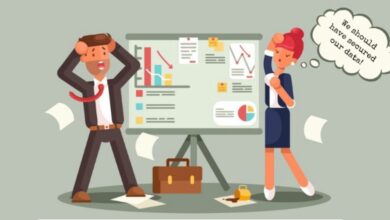How can I become a data scientist?

A data scientist is a professional who is responsible for analyzing data and extracting valuable insights from it. The role of a data scientist is to help organizations make better decisions by extracting knowledge from data. Becoming a data scientist requires a combination of strong technical skills and business acumen. The technical skills required include experience with data mining, statistical analysis, and machine learning. Business acumen is important because data scientists need to be able to communicate their findings to decision-makers and help them solve business problems.
When one is enrolling in a data science course, one need to know about how one can they become one. If you also have the same curiosity, keep on reading. Here we are discussing the same in detail. Let’s have a look!
Steps to follow to become a data scientist:
1. Brush Up on Data Science Fundamentals:
Brush Up on Data Science Fundamentals is a step to become a data scientist. It is a course that covers the basics of data science, from data wrangling to exploratory data analysis. The course is designed for students who are new to data science, and covers the most important concepts and tools in the field. The course is also beneficial for students who are looking to refresh their data science skills.
2. Meet the Educational Requirements:
In order to become a data scientist, one of the steps that you need to take is to meet the educational requirements. This usually means obtaining a bachelor’s degree in a field that is related to data science, such as computer science, mathematics, or statistics. Additionally, many data scientists also have a master’s degree or higher in data science or a related field. Of course, meeting the educational requirements is not the only thing that you need to do in order to become a data scientist. You also need to have strong analytical and problem-solving skills, as well as experience working with data. However, if you have the educational background and the necessary skills, you should be well on your way to becoming a successful data scientist.
3. Plan Your Career Path and Specialization:
As a data scientist, it is important to first establish what your career path will be. What education and experience do you need to get to your desired position? What company or companies do you want to work for? What geographical area do you want to live and work in? These are important questions to answer when first starting out on your data science journey. Once you have your goals set, it is time to begin specializing. Data science is a vast and ever-growing field, so it is important to focus on specific areas that interest you. By specializing in certain areas, you will be able to better understand the data and find insights that others may miss. It is also important to keep up with the latest trends and developments in your chosen areas of specialization.
4. Hone Essential Skills:
One essential skill that a data scientist should possess include strong analytical and critical thinking skills. They must be able to take large amounts of data and find trends and patterns. They must also be able to think critically about the data in order to determine how it can be used to solve problems.
5. Familiarize Yourself With the Essential Data Science Tools:
Before you can become a data scientist, you need to be familiar with the essential data science tools. Data science is a relatively new field, so there are a limited number of tools that are considered essential. However, these tools are constantly evolving, so it is important to keep up-to-date with the latest developments. The essential data science tools include:
- Data wrangling tools: These tools are used to clean and transform data. The most popular data-wrangling tool is R, but Python is also gaining in popularity.
- Data visualization tools: These tools are used to create visualizations of data. The most popular data visualization tool is Tableau, but there are many others to choose from.
- Statistical analysis tools: These tools are used to perform statistical analysis on data. The most popular statistical analysis tool is R, but Python is also gaining in popularity.
- Machine learning tools: These tools are used to build models that can learn from data. The most popular machine learning tool is Python, but there are many others to choose from.
6. Gain Practical Experience by Working on Projects and Building Your Portfolio:
As a data scientist, it is important to have a strong portfolio that showcases your abilities. One way to gain practical experience and build your portfolio is to work on projects. By working on projects, you can learn new skills and techniques while also gaining valuable experience. Additionally, your portfolio will grow and showcase your abilities to potential employers. Therefore, working on projects is a great way to become a data scientist.
7. Build Your Network and start preparing for an interview:
Building Your Network and start preparing for an interview is the last step to becoming a data scientist. By doing this you will be able to understand what data scientists do, the tools they use, and the problems they solve. Additionally, you will be able to start refining your own skills and abilities. Finally, you will be able to make connections with others in the field, which can lead to potential opportunities.
Parting words:
In conclusion, becoming a data scientist does require a lot of hard work and dedication and pursuing Data science course. However, if you are willing to put in the time and effort, it is definitely possible to achieve your goal. With the right skills and knowledge, you can definitely become a data scientist and make a difference in the field.




